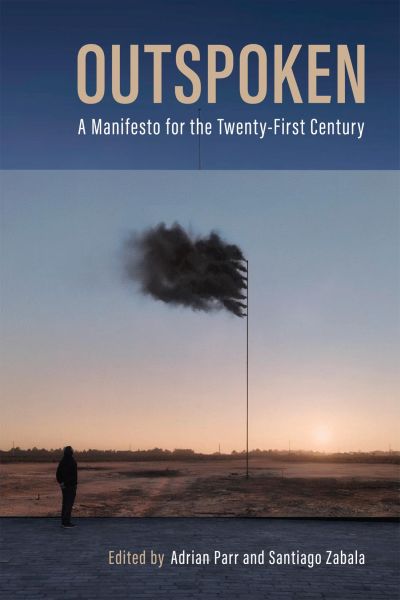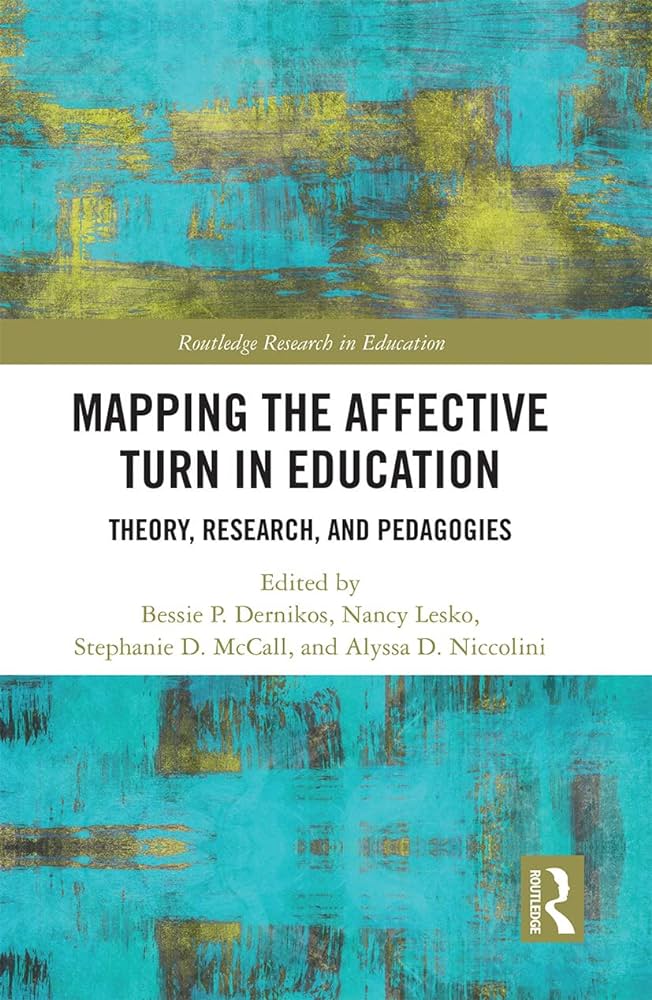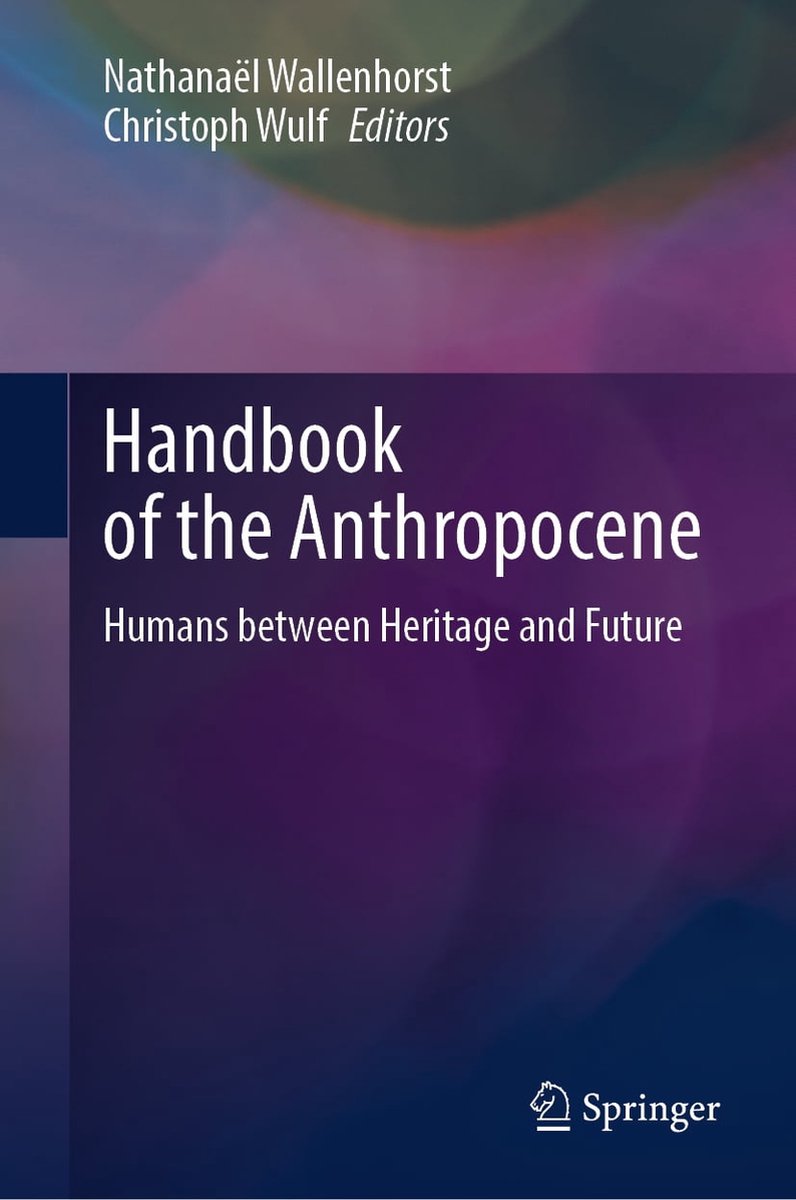
2023
“Humanities”

2023
“New Humanities”
2023
“Valedictory lecture: We are rooted but we flow”
This is the text of the valedictory lecture that Rosi Braidotti delivered in June 2022, to mark the retirement from her academic position at Utrecht University. It was conceived as a spoken text and written within the rhetorical tradition of valedictory speeches. The text traces the different phases of Braidotti's career in terms of institutional practice and theoretical developments over the last 40 years. Combining academic analysis with deep ethical passion, Braidotti argues for the need of combining critique with creativity, and radicalism with excellence, to highlight the relevance of the new humanities for our troubled world. Ending on a high note of affirmative ethics, Braidotti calls for a more inclusive, diverse and critical practice of the humanities, as a living experiment of what we are capable of becoming.
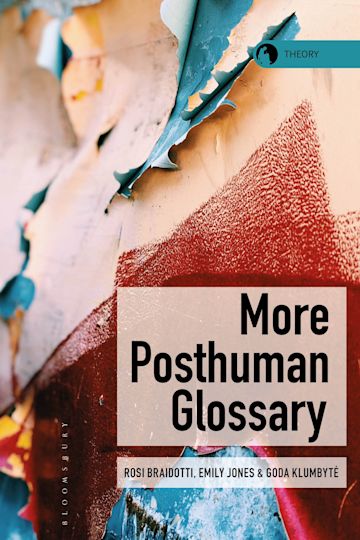
2022
More Posthuman Glossary (Theory in the New Humanities)
The notion of the posthuman continues to both intrigue and confuse, not least because of the huge number of ideas, theories and figures associated with this term. More Posthuman Glossary provides a way in to the dizzying array of posthuman concepts, providing vivid accounts of emerging terms. It is much more than a series of definitions, however, in that it seeks to imagine and predict what new terms might come into being as this exciting field continues to expand.
A follow-up volume to the brilliant interventions of Posthuman Glossary (2018), this book extends and elaborates on that work, particularly focusing on concepts of race, indigeneity and new ideas in radical ecology. It also includes new and emerging voices within the new humanities and multiple modes of communicating ideas.
This is an indispensible glossary for those who are exploring what the non-human, inhuman and posthuman might mean in the 21st century.
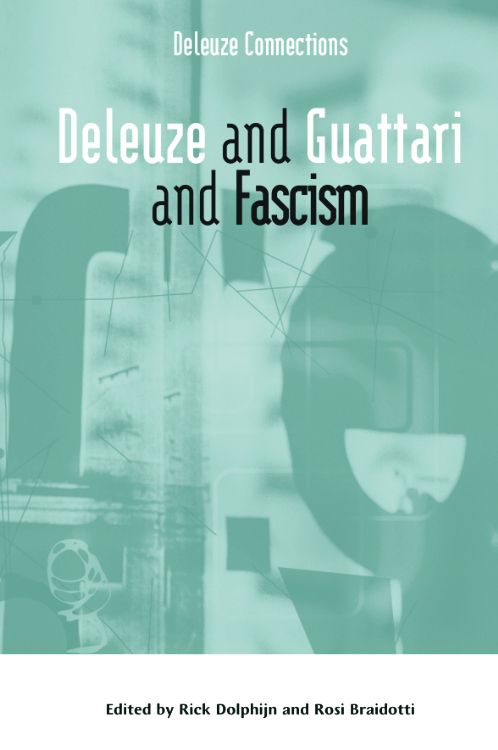
2022
Deleuze and Guattari and Fascism
A range of international contributors uncover and reflect upon the anti- and non-fascist ethics situated in Deleuze and Guattari's philosophical framework and that of the scholarship that followed after. The 'new philosophy' that Deleuze and Guattari propose to us is engaged and situated and it asks us to map urgent issues, not by opposing ourselves to it, but by mapping how it is part of the everyday, and of ourselves. The global rise of fascism today demands a rigid and careful analysis. The concepts and themes that Deleuze (and Guattari) handed to us in their extensive oeuvre can be of immense help in capturing its micropolitics and macropolitics.
All of the contributions in this volume have a keen eye on the practices of fascism today, meaning that they all show us, very much in line with Deleuze's thinking, how fascism works. The book is organized in three parts. The first part (21st century fascisms) focuses on the global threats technologies and algorithmic realities; the second part (situated fascisms) holds analyses of fascisms at work in different parts of the contemporary world; the third part deals with patriarchal fascism and offers concrete case-studies of sexualized and genderized modes of oppression.
2022
“The Virtual as Affirmative Praxis: A Neo-Materialist Approach”
This chapter addresses the resonances between the concept of the virtual and a material philosophy of life, based on heterogeneity, hybridity, and becoming. It outlines the basic tenet of this materialist philosophy and explores its implications, in relation to the notions of difference and becoming. It, also, highlights the importance of an ethics of affirmation, which may balance the creative potential of critical thought with a dose of negative criticism and the oppositional consciousness that such a stance, necessarily, entails. Situating this project in the context of cognitive capitalism, it discusses the question of how to resist the injustice, violence, and exclusions of the times, our times, the better to resist them and engage with them in an affirmative manner.
2022
“Virginia Woolf, Immanence and Ontological Pacifism”
In these times of pandemics, increasing social inequalities, civic unrest and the rise of illiberalism, populism, anti-European Union politics and the ‘fake news’ ideology, it is important to revisit Woolf’s pacifism and anti-war and anti-fascist activism. Woolf’s writing offers a mode of understanding emotional economies of despair at this moment of the posthuman convergence and reworking these negative passions into the building blocks of a sustainable present and an affirmative future. Approaching Woolf from a feminist neo-vitalist position as a thinker of immanence, sexed matter, and affirmative ethics, she shows us how to embody the cracks or wounds of existence in ways accountable to our times.
